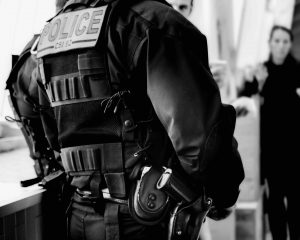 In 1963, the Supreme Court ruled on a case known as Brady v. Maryland. The criminal case involved a defendant, Brady, who was accused along with another defendant of murdering a third man. Brady told police that he was involved in the murder, but he had no intention of killing the man and his partner had been solely responsible for the murder. The two men were tried separately and both were convicted of first-degree murder and sentenced to death.
In 1963, the Supreme Court ruled on a case known as Brady v. Maryland. The criminal case involved a defendant, Brady, who was accused along with another defendant of murdering a third man. Brady told police that he was involved in the murder, but he had no intention of killing the man and his partner had been solely responsible for the murder. The two men were tried separately and both were convicted of first-degree murder and sentenced to death.
Brady appealed his conviction on the grounds that the prosecution withheld evidence that the other defendant confessed to being solely responsible for the murder. His case went all the way to the Supreme Court where the justices decided in favor of Brady, saying the conviction should be vacated on the grounds that the prosecution did not turn over exculpatory evidence that would have resulted in a not guilty verdict.
The legacy of Brady v. Maryland is that it forces prosecutors to turn over any evidence that may help the defense at trial. Does this always happen? Of course, not. More disturbingly, according to one USA Today investigation, many police officers who have been sanctioned for on-the-job problems are still called to testify in cases in which their testimony is relied upon to convict defendants.
How the System Works
The prosecution in a criminal trial cannot fail to disclose evidence to the defense that they knowingly have. If caught, they can be sanctioned for prosecutorial misconduct and their conviction will likely not stand on appeal. You cannot fail to disclose something that you do not know, however, and you cannot know something unless you are paying attention. So, police departments simply fail to keep detailed records on problem officers and their hands are legally clean, so to speak.
The Invisible Institute, which is based in Chicago, surveyed dozens of “Brady Lists” from police and prosecutors to measure compliance with the Brady ruling. The investigation found that thousands of individuals have been convicted on testimony from police officers that would qualify as having credibility issues. The investigation found that at least 300 prosecutor’s officers failed to take any steps to manage problem officers or disclose anything to the defense.
In fact, a city like Chicago, which is one of the largest in the nation, has no list for tracking officers who have been reprimanded on the job for dishonesty. What you do not know cannot hurt you, apparently. In other places, the lists exist but are not made public.
Why Does This Work?
Even in cases where the prosecution fails to turn over evidence to the defense, a conviction can stand on appeal if the justices do not believe that the failure had a material impact on the case. The prosecution will always say that they did not believe that the evidence they failed to turn over was relevant. During an appeal, issues of fact in the case do not matter. The appellate court does not rule on whether there was enough evidence to convict the defendant, only on whether or not the established rules of procedure were violated. In many cases, a Brady violation can exist and the defendant will still end being convicted.
Talk to a Chicago Criminal Defense Attorney
When a defense attorney takes a case, they must conduct due diligence on any witnesses, including officers, who will testify against their client. While the prosecution may be able to skirt the law because of lax standards, a good criminal defense attorney can make sure this knowledge makes it before a jury. If you have been charged with a crime, David Freidberg can help. Call us at (312) 560-7100.
 Chicago Criminal Lawyer Blog
Chicago Criminal Lawyer Blog


